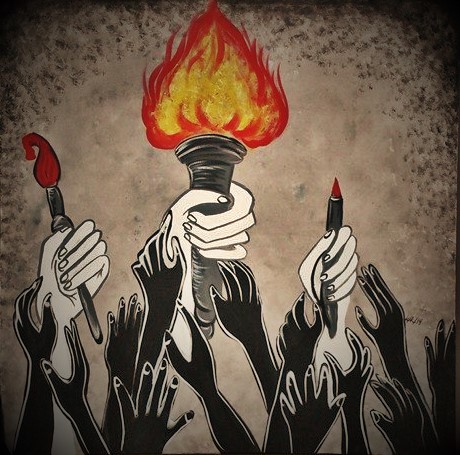With the conclusion of Sri Lanka's parliamentary elections last week, the island has reached an important juncture. In the North-East, the Tamil National Alliance swept the polls on a clear platform of self-determination through federalism and an international mechanism of accountability for the massacres of Tamils. In the Sinhala south, the UNP promise of a future without the corruption of the Mahinda Rajapaksa era, secured enough seats to confine the former president to the opposition benches.
The southern electorate has endorsed the UNP’s offer of a commitment to ending nepotism, tackling corruption and embracing the rule of law. Pledges to implement such democratic reform across the island are undoubtedly welcome. However, on issues that the Tamils have deemed central - such as demilitarisation of the Tamil North-East, international accountability for mass atrocities and a durable political solution - there was little to differentiate between the resistant policies of the UNP and Rajapaksa’s UPFA. Indeed, as campaigning reached fever pitch, parties across the Sinhala political spectrum emphasised their opposition to key Tamil demands, and outbid each other's Buddhist nationalist credentials. The UNP, whose government oversaw the massacre of over 3000 Tamils during the 1983 pogrom, repeatedly emphasised Sinhala Buddhism nationalist sentiments that are at odds with its proclaimed liberalism. Thus, as with President Sirisena’s victory in January, the UNP’s victory was not the Sinhala electorate rejecting Rajapaksa’s Sinhala supremacism or his refusal to entertain Tamil grievances, but a distaste for the culture of corruption and nepotism that had become pervasive under his rule. That Rajapaksa's campaign had an appeal that ultimately won him and his allies enough parliamentary seats to deny the UNP a simple majority, is an affirmation of the sway that his distinctive brand of nationalist authoritarianism still holds across the south.
In the North-East, Tamils decisively backed the TNA platform, with its promise of immediate action and tangible results on Tamil demands, including a federal solution by 2016. Through its legacy, the Tamil National Alliance is inextricably linked to Tamil nationalism. The party’s leaders are well aware of this and, as they have done in all past electoral campaigns, emphatically foregrounded fundamental issues of nationhood, homeland and self-determination, knowing the centrality of these to popular Tamil sentiment. Indeed, the TNA’s advocacy for a federal solution echoes the same call by the TNPF, a party that doggedly advocated for the recognition of the Tamil nation, recently articulated in the slogan ‘two sovereign nations in one country’. As the successful campaign of even the UNP’s candidate in Jaffna demonstrated, only a Tamil nationalist platform can hold mass appeal in the North-East.
It now beholds the TNA to honour the overwhelming support and trust placed in the party by the Tamil people. TNA leader Sampanthan’s pledge to uphold the people's mandate for a political solution and address their immediate needs without any delay must be swiftly followed through. Moreover, it is now an opportune moment for the TNA to embrace the island-wide yearning for good governance and seek those qualities within its own party. The party should work to be transparent in all its dealings, especially on such key issues such as accountability and a political solution.
In order to see long term stability on the island the international community will, as ever, play a key role. Despite some reforms enacted by the government, which have been welcomed by many, outstanding immediate issues such as demilitarisation of the North-East, resettlement in original homes, the indefinite detention of political prisoners and accountability for the disappeared in the North-East, are barriers to the hope of reconciliation. Whilst the UNP-led government is an improvement from Rajapaksa’s rule, through its active engagement with Sri Lanka the international community must ensure that the new government does not follow Sri Lanka’s succession of governments that have a long history of broken promises. Indeed, Sri Lanka’s new leaders already boast that, Rajapaksa’s removal alone suffices for trade preferences to be restored and cordial relations with its international partners - despite reports of ongoing rights abuses and continuation of militarised repressive policies in the North-East. International engagement going forward should be conditional on progress on these key issues which are central to producing lasting and equitable peace and stability in the island.
Ultimately however, accountability for the mass atrocities of 2009, will remain at the core of fulfilling any hope of a sustainable future for the island. How the new Sri Lankan government responds to the upcoming United Nations report into mass atrocities committed during the final stages of the armed conflict, will be the true litmus test of its liberal credentials. The report, which is expected to state tens of thousands of Tamils died predominantly at the hands of state forces, must be accepted in its entirety and an international mechanism with prosecutions, as clearly espoused for by the victims must be pursued. Neither Sri Lanka’s ongoing ethnic conflict nor the long standing impunity, can be tackled whilst such egregious crimes, for which Sri Lanka’s apex political and military leaders hold command responsibility, remain unpunished. The next few weeks will make amply clear if the promise of a different Sri Lanka without Rajapaksa in power has any justification.
 Illustration by Keera Ratnam |
We need your support
Sri Lanka is one of the most dangerous places in the world to be a journalist. Tamil journalists are particularly at threat, with at least 41 media workers known to have been killed by the Sri Lankan state or its paramilitaries during and after the armed conflict.
Despite the risks, our team on the ground remain committed to providing detailed and accurate reporting of developments in the Tamil homeland, across the island and around the world, as well as providing expert analysis and insight from the Tamil point of view
We need your support in keeping our journalism going. Support our work today.
For more ways to donate visit https://donate.tamilguardian.com.

